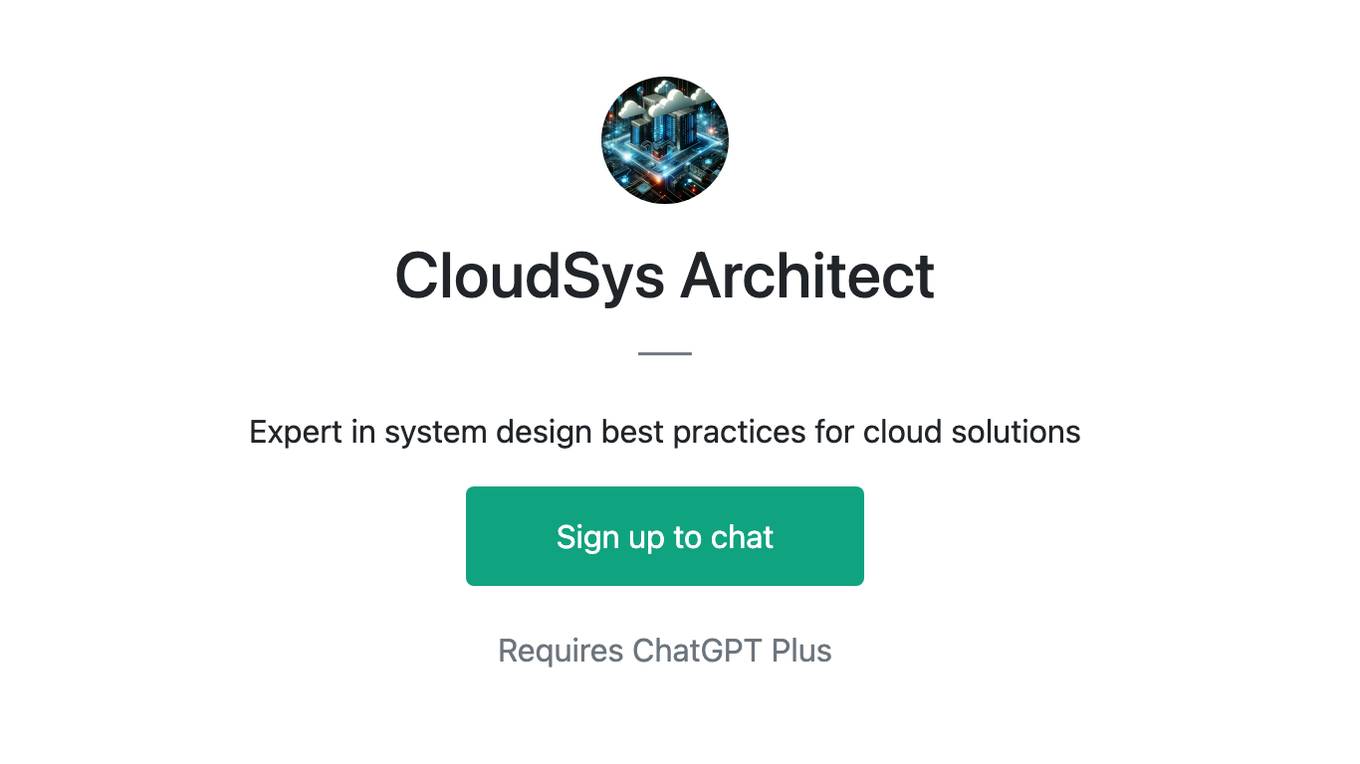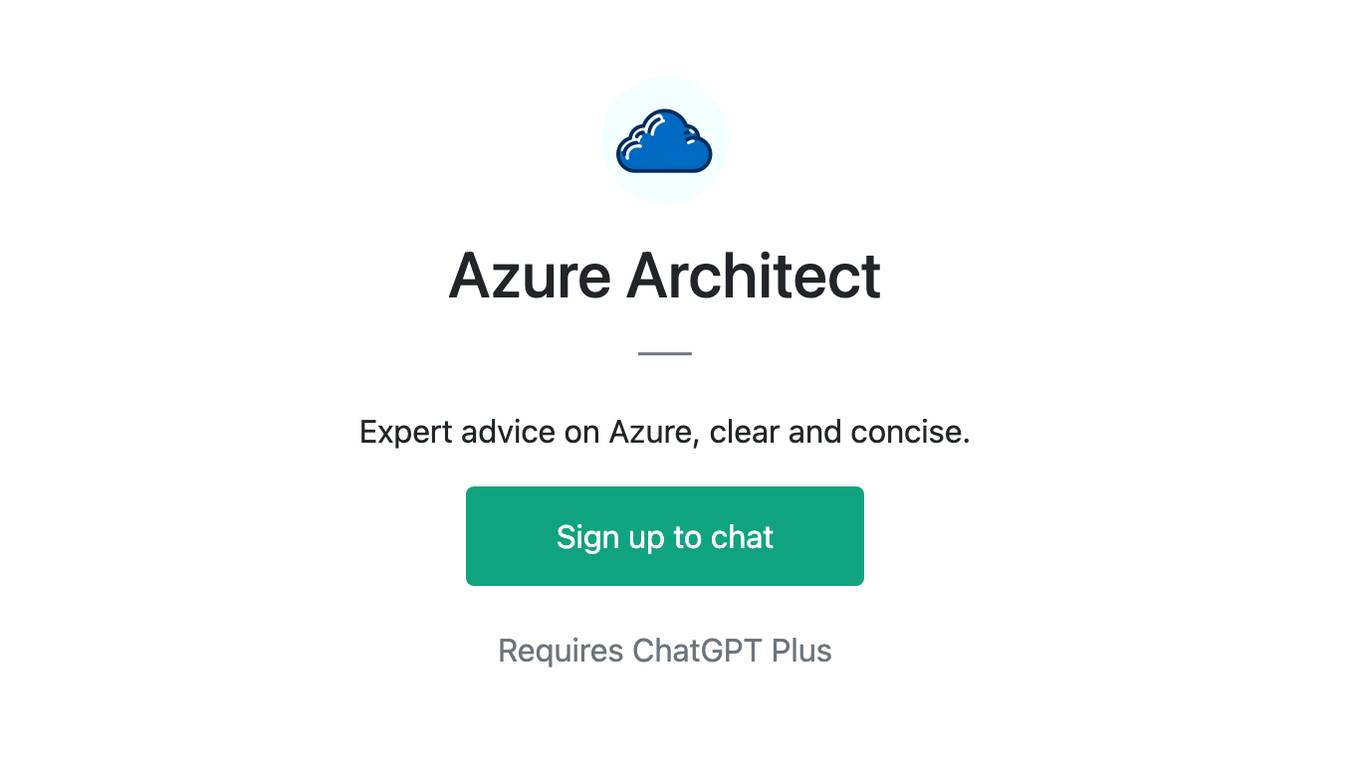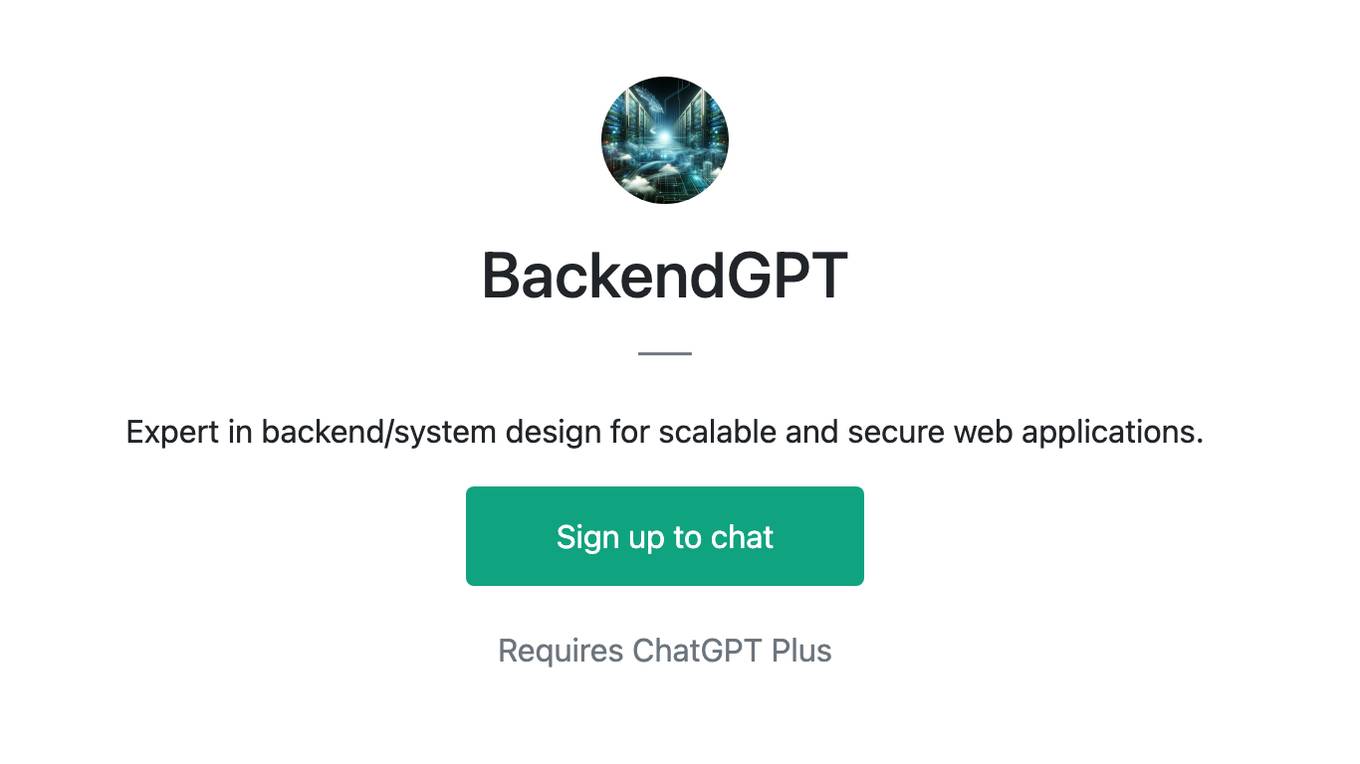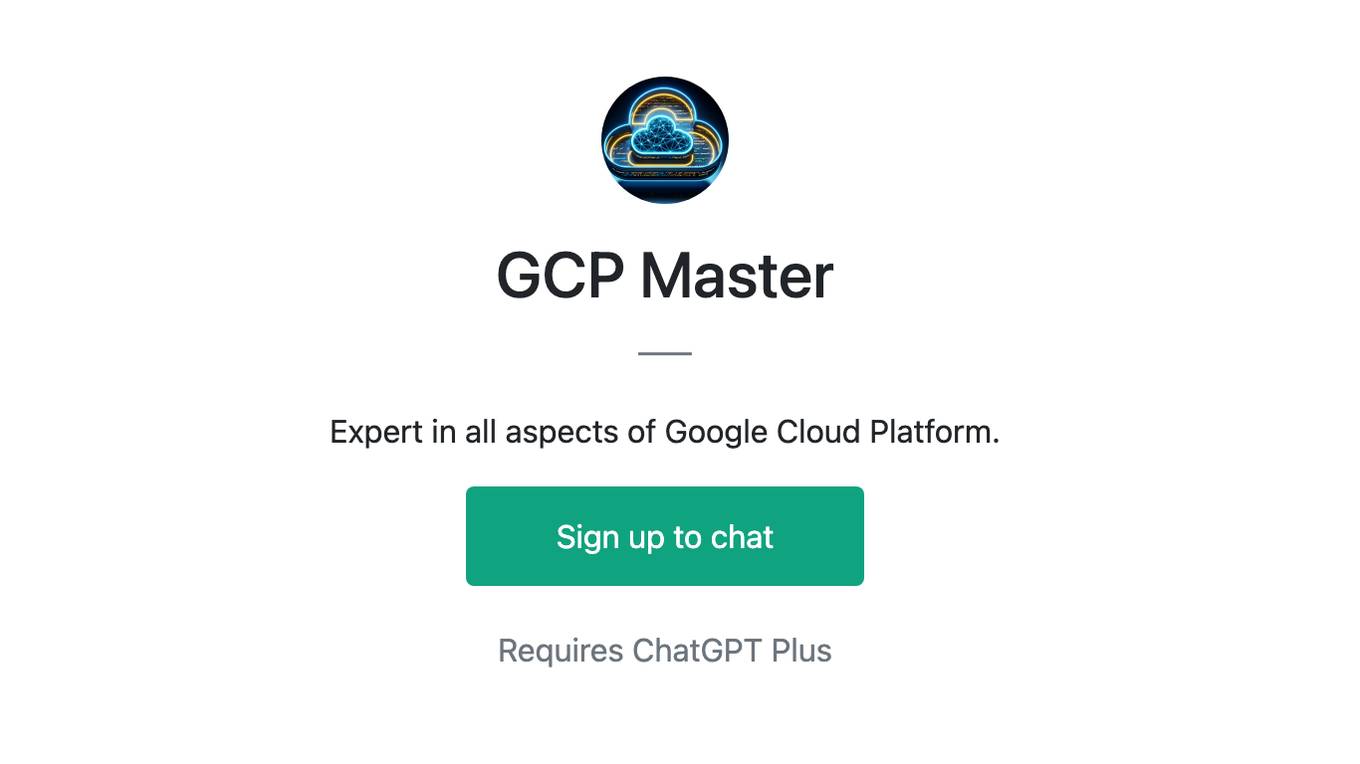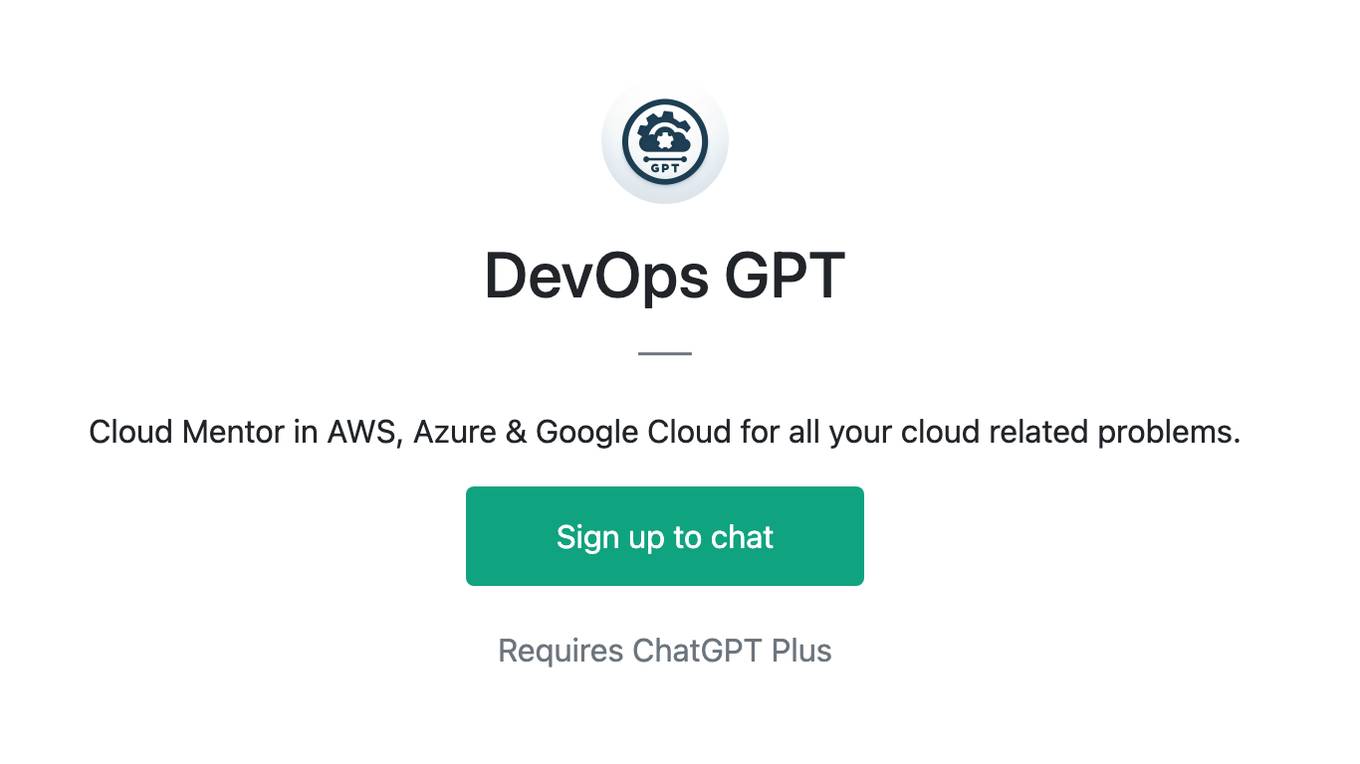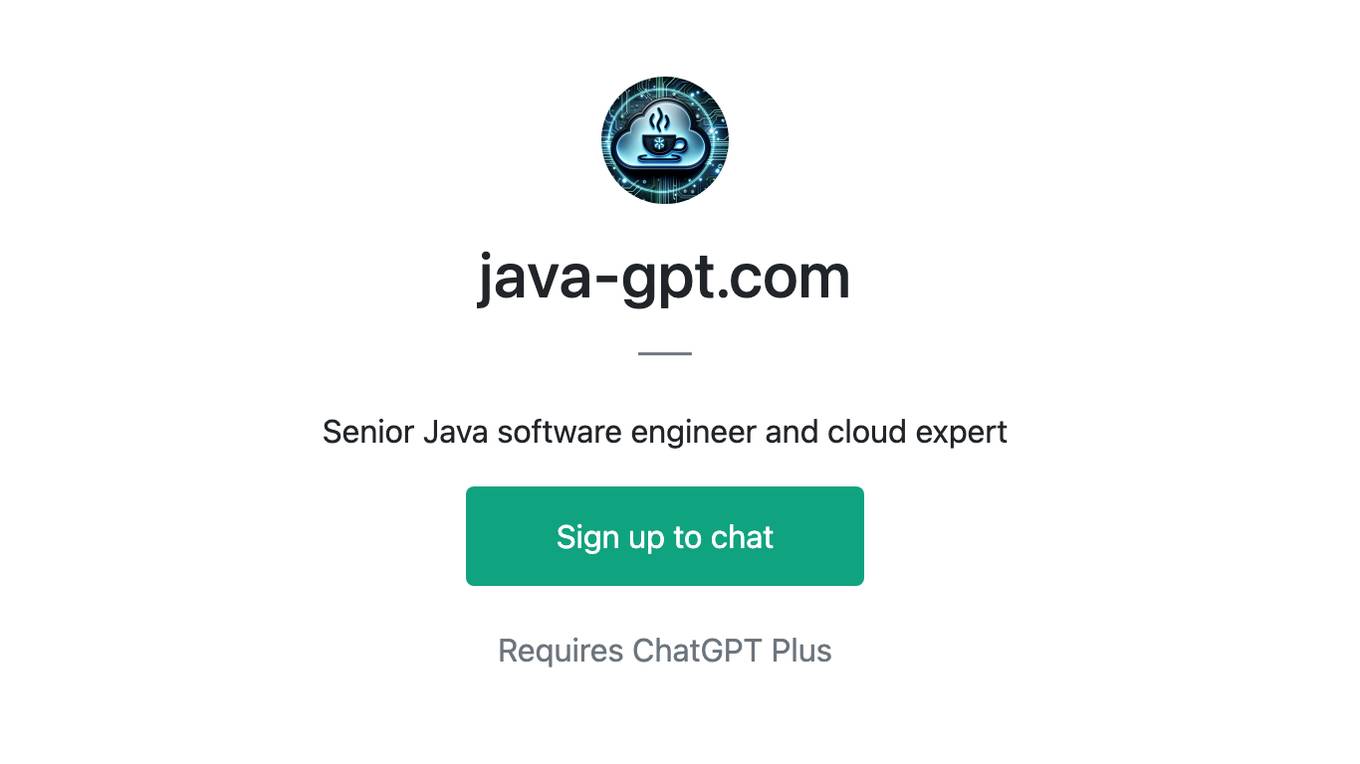Best AI tools for< Design Cloud Systems >
20 - AI tool Sites

BugFree.ai
BugFree.ai is an AI-powered platform designed to help users practice system design and behavior interviews, similar to Leetcode. The platform offers a range of features to assist users in preparing for technical interviews, including mock interviews, real-time feedback, and personalized study plans. With BugFree.ai, users can improve their problem-solving skills and gain confidence in tackling complex interview questions.
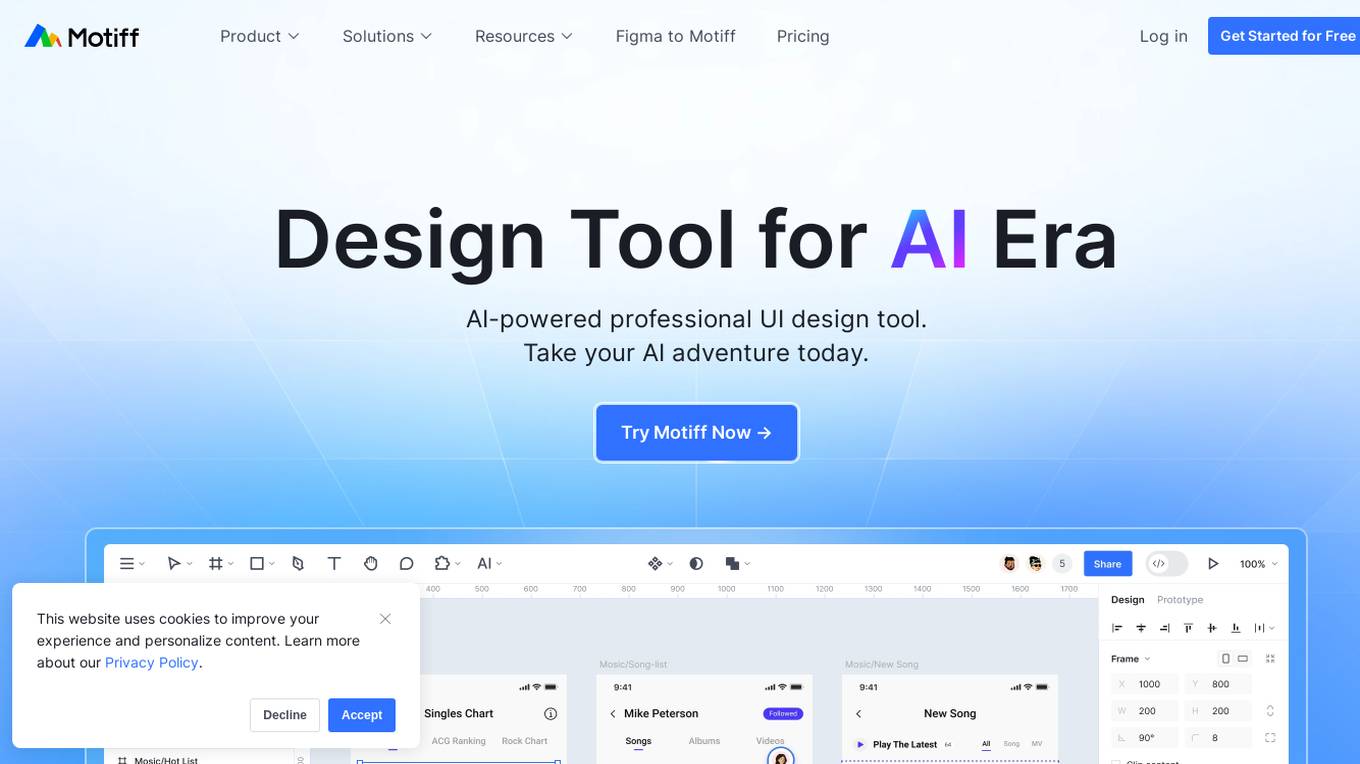
Motiff
Motiff is an AI-powered professional interface design tool that enables collaboration between human and AI to achieve 10x efficiency in UI design. It offers a comprehensive platform for designing, aligning, and building with a team, along with features like cloud collaboration, prototyping, and Dev Mode for developers. Motiff provides high-performance design tools at a cost-effective price, with a focus on smooth performance, speedy optimization, and robust stability. The application aims to push creativity to the max by starting intelligent practices and exploring the future of AI design systems.
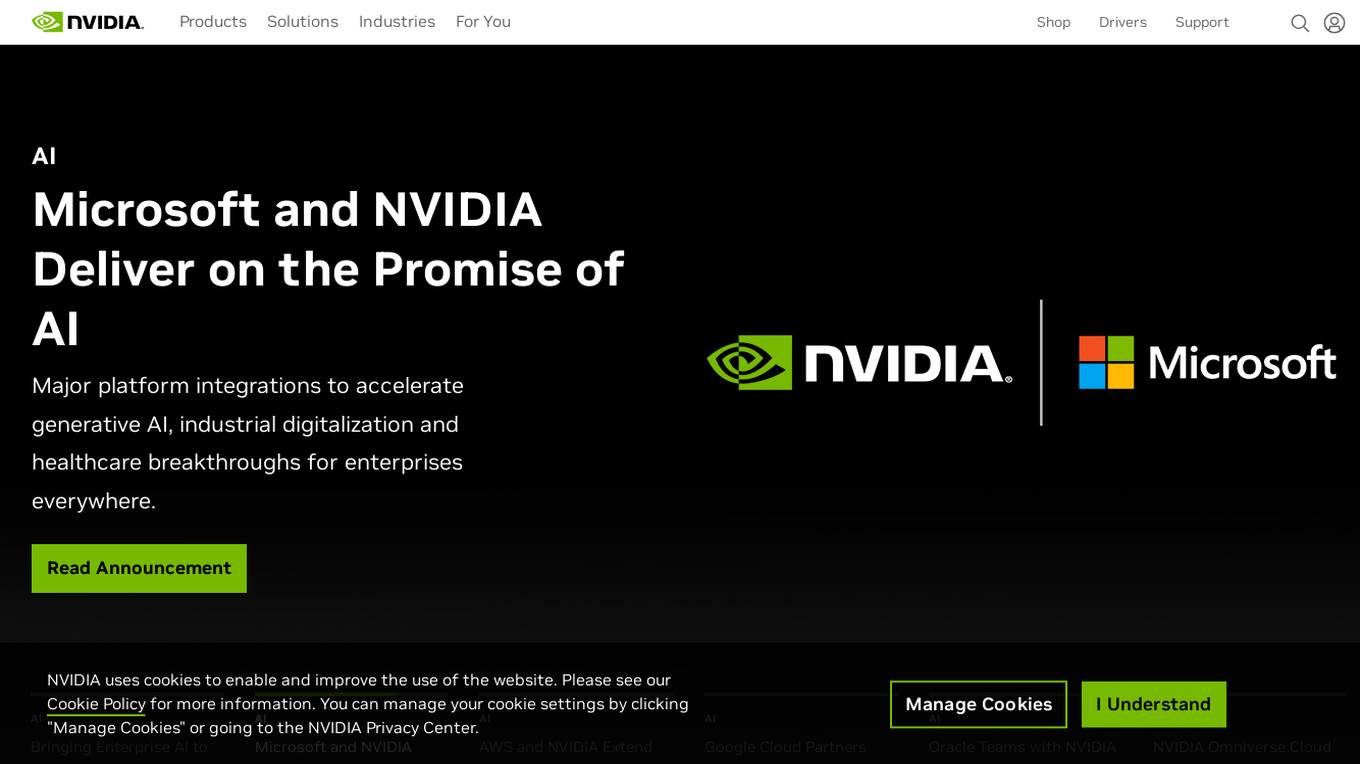
NVIDIA
NVIDIA is a world leader in artificial intelligence computing. The company's products and services are used by businesses and governments around the world to develop and deploy AI applications. NVIDIA's AI platform includes hardware, software, and tools that make it easy to build and train AI models. The company also offers a range of cloud-based AI services that make it easy to deploy and manage AI applications. NVIDIA's AI platform is used in a wide variety of industries, including healthcare, manufacturing, retail, and transportation. The company's AI technology is helping to improve the efficiency and accuracy of a wide range of tasks, from medical diagnosis to product design.

Microsoft
Microsoft is a leading technology company that develops, manufactures, licenses, supports, and sells computer software, consumer electronics, personal computers, and services. Its best-known software products are the Microsoft Windows operating system, the Microsoft Office suite, and the Internet Explorer and Edge web browsers. Its hardware products include the Xbox video game consoles and the Surface tablet computers. Microsoft is also a major provider of cloud computing services through its Azure platform.
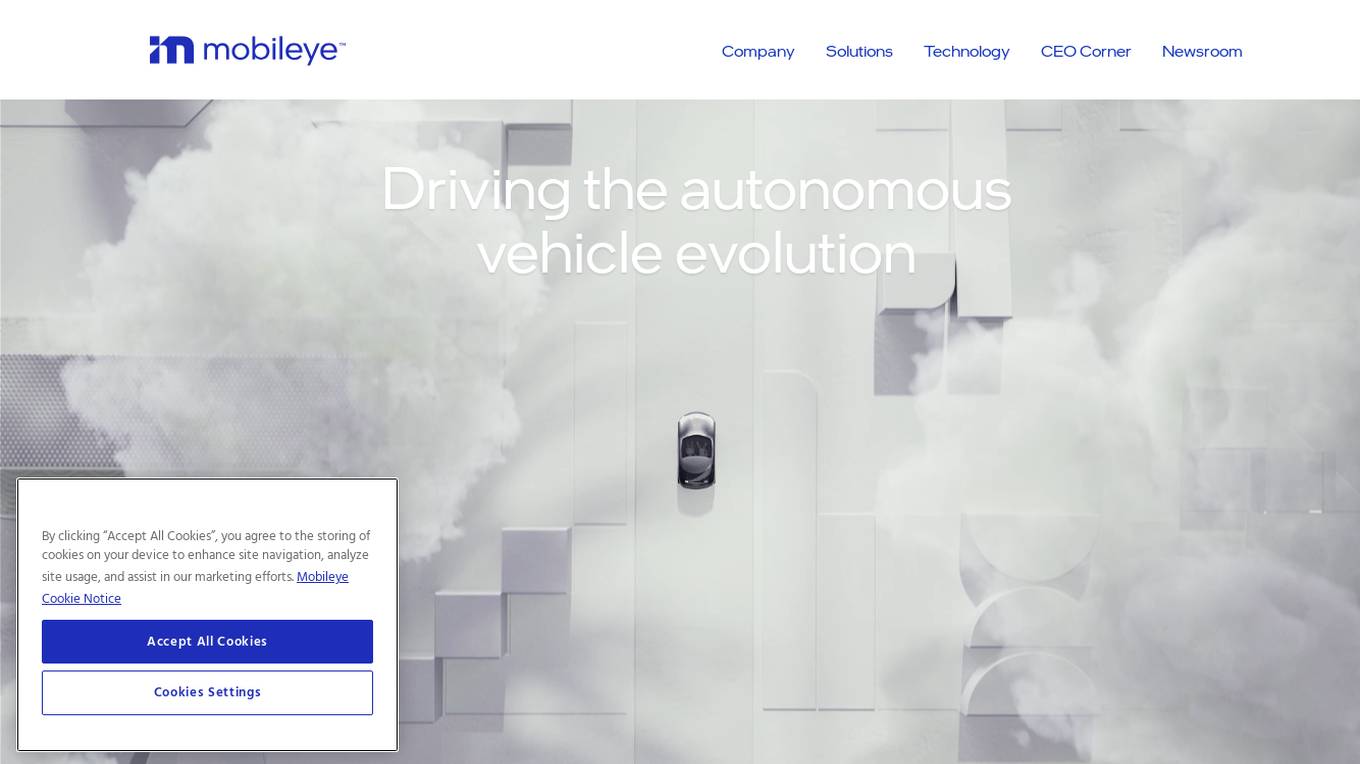
Mobileye
Mobileye is a leading company specializing in driver assist and autonomous driving technologies. With a focus on developing innovative solutions for the automotive industry, Mobileye has revolutionized driver-assist technology by leveraging camera sensors to enhance safety and efficiency in vehicles. The company offers a range of solutions, from cloud-enhanced driver-assist systems to fully autonomous driving capabilities, all designed to provide a seamless and natural driving experience. By developing both hardware and software in-house, Mobileye ensures a safe-by-design approach that prioritizes scalability and efficiency, making their technology accessible to the mass market.
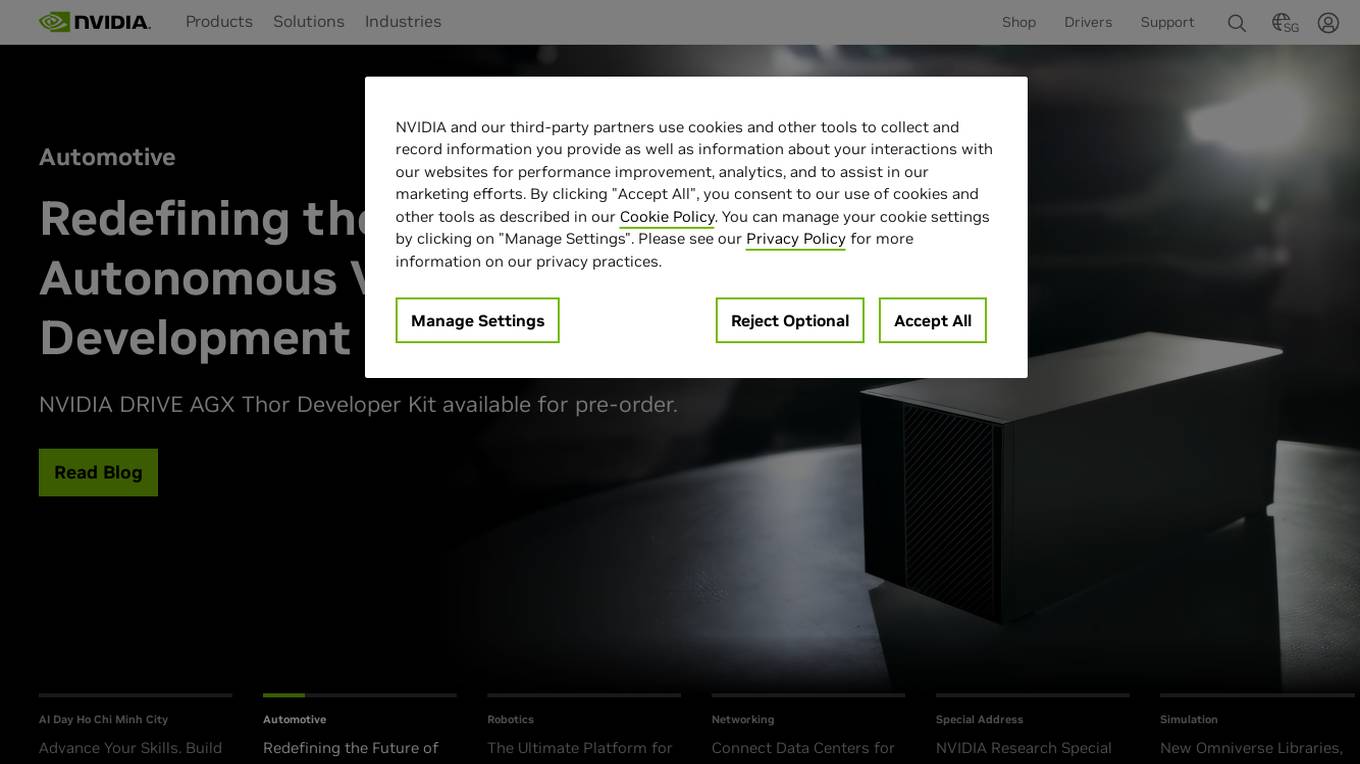
NVIDIA
NVIDIA is a world leader in artificial intelligence computing, providing solutions for cloud services, data center, embedded systems, gaming, and creating graphics cards and GPUs. They offer a wide range of products and services, including AI-driven platforms for life sciences research, end-to-end AI platforms, generative AI deployment, advanced simulation integration, and more. NVIDIA focuses on modernizing data centers with AI and accelerated computing, offering enterprise AI platforms, supercomputers, advanced networking solutions, and professional workstations. They also provide software tools for AI development, data center management, GPU monitoring, and more.
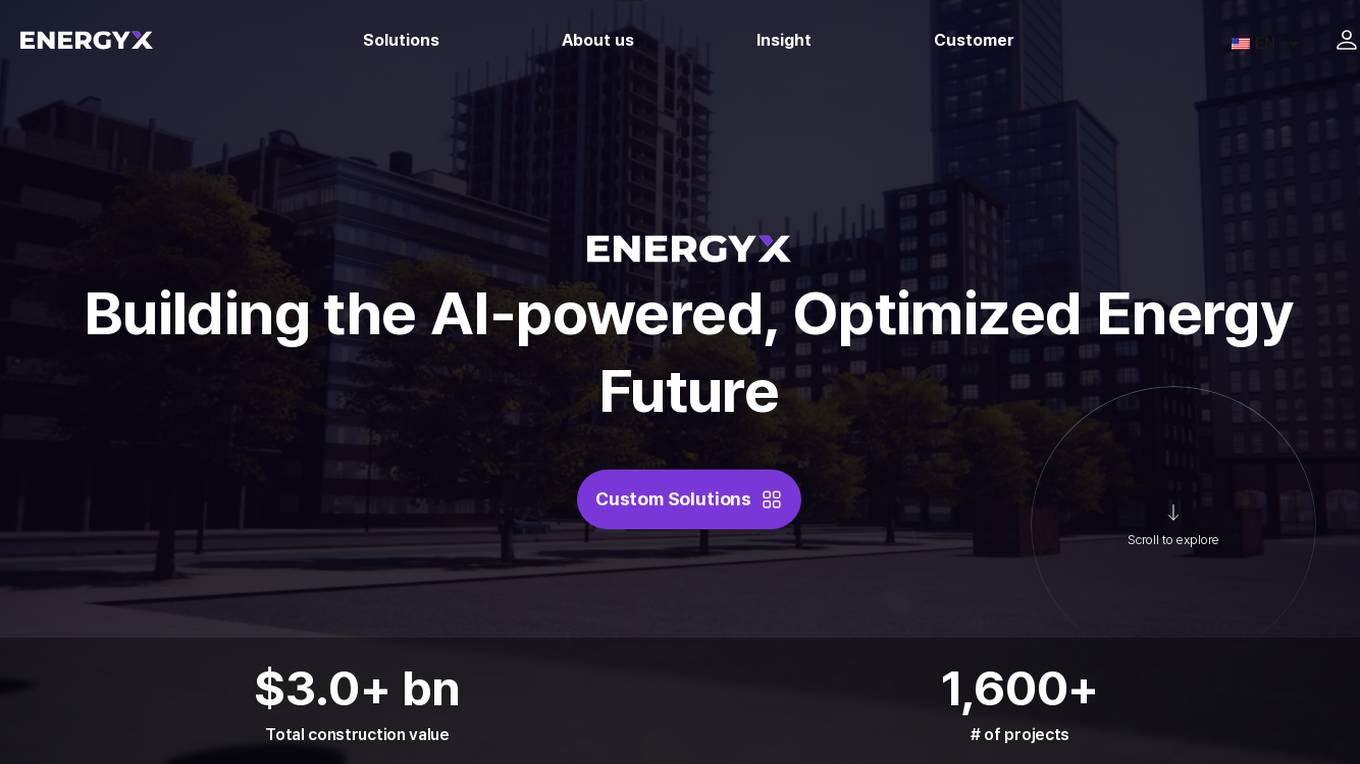
EnergyX
EnergyX is a leading provider of energy optimization solutions for the architectural industry. They offer fully integrated solutions for sustainable design, cloud-based optimization, innovation research, architectural design services, and platform financing. EnergyX focuses on delivering comprehensive services to enhance building sustainability, energy efficiency, and compliance with green building standards. With a strong emphasis on AI-driven solutions, EnergyX aims to revolutionize the construction market by providing cutting-edge technologies and sustainable practices.

CloudLinks
CloudLinks is an AI-powered platform that offers a range of services including mobile application development, web design, consultancy, cloud solutions, hosting, and maintenance. The platform focuses on customer-centric solutions tailored to individual business needs, providing seamless integration with existing systems and empowering businesses with e-commerce solutions and AI-driven innovation. CloudLinks prioritizes collaboration with clients, delivering reliable and innovative solutions that enhance efficiency and growth. With a wealth of experience and a commitment to customer success, CloudLinks aims to streamline operations, boost customer engagement, and increase revenue for businesses.

N-iX
N-iX is a global provider of software development outsourcing services with delivery centers across Europe and over 2,200 expert software developers. We partner with technology businesses globally helping them to build successful engineering teams and create innovative software products. Our expertise includes cloud solutions, data analytics, machine learning & AI, embedded software and IoT, enterprise VR, and RPA and enterprise platforms.

AiHouse
AiHouse is an AI-powered integrated 3D design tool that provides an all-in-one solution for interior design and manufacturing. It offers a range of features including 2D/3D floor plan creation, room decoration, furniture customization, photo-realistic visualization, 3D walkthrough videos, product visualization, and end-to-end design-to-manufacture solutions. AiHouse is designed to streamline the design process, improve communication with clients, and increase efficiency for interior designers, furniture brands, and manufacturers.
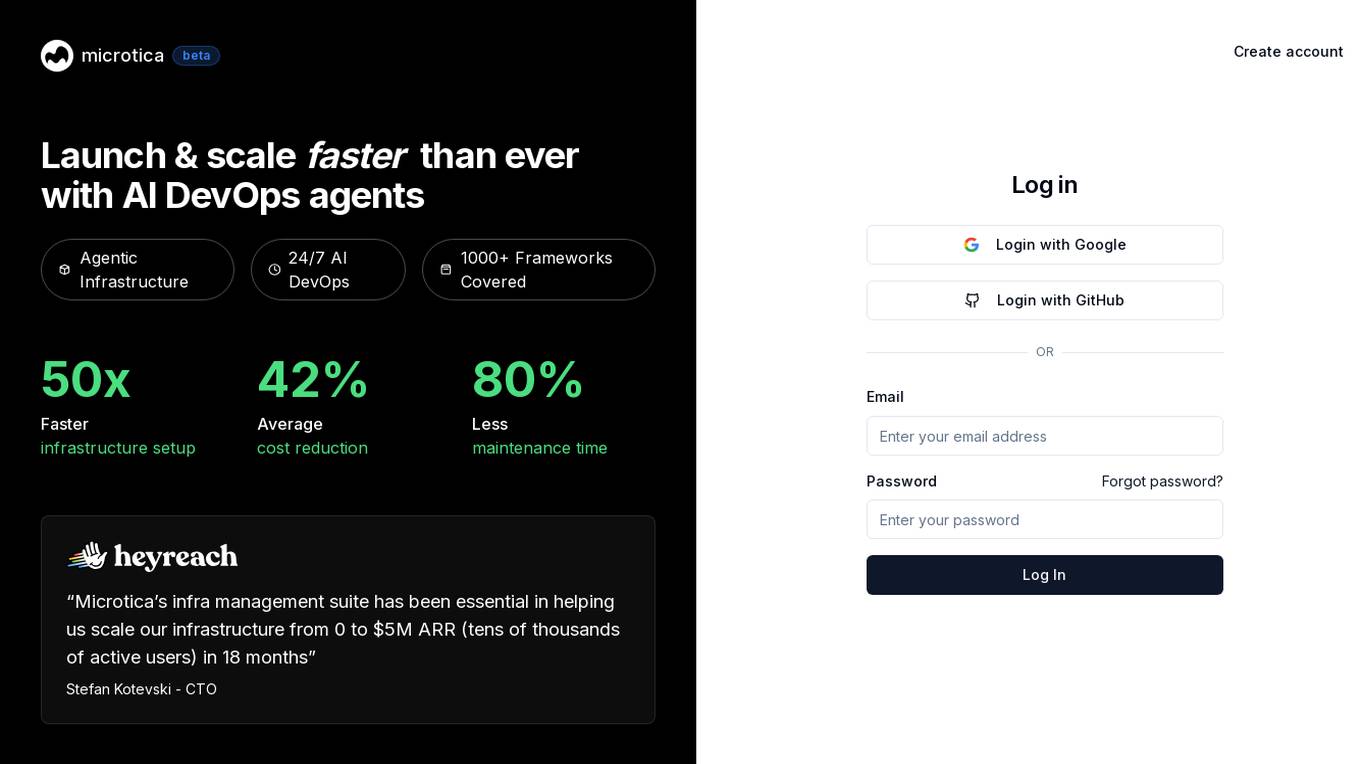
Microtica AI Deployment Tool
Microtica AI Deployment Tool is an advanced platform that leverages artificial intelligence to streamline the deployment process of cloud infrastructure. The tool offers features such as incident investigation with AI assistance, designing and deploying cloud infrastructure using natural language, and automated deployments. With Microtica, users can easily analyze logs, metrics, and system state to identify root causes and solutions, as well as get infrastructure-as-code and architecture diagrams. The platform aims to simplify the deployment process and enhance productivity by integrating AI capabilities into the workflow.
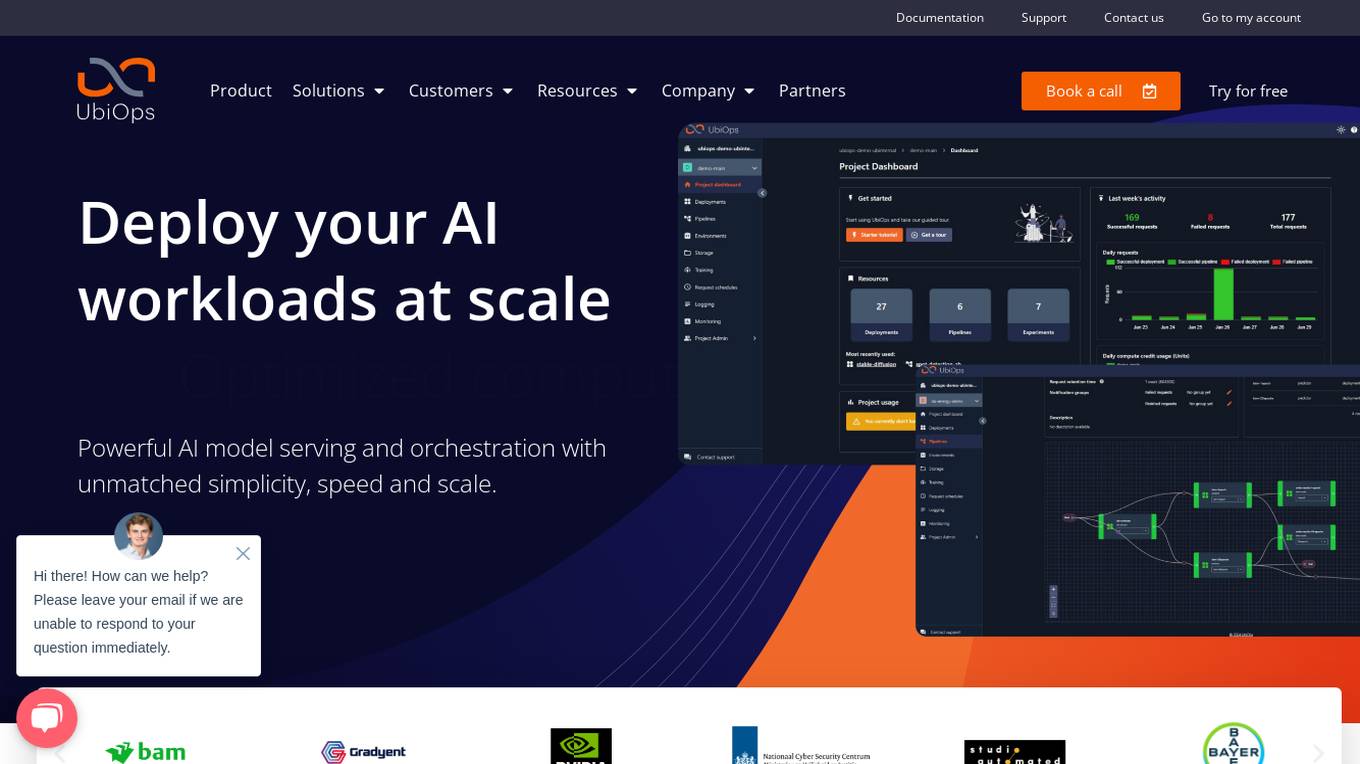
UbiOps
UbiOps is an AI infrastructure platform that helps teams quickly run their AI & ML workloads as reliable and secure microservices. It offers powerful AI model serving and orchestration with unmatched simplicity, speed, and scale. UbiOps allows users to deploy models and functions in minutes, manage AI workloads from a single control plane, integrate easily with tools like PyTorch and TensorFlow, and ensure security and compliance by design. The platform supports hybrid and multi-cloud workload orchestration, rapid adaptive scaling, and modular applications with unique workflow management system.
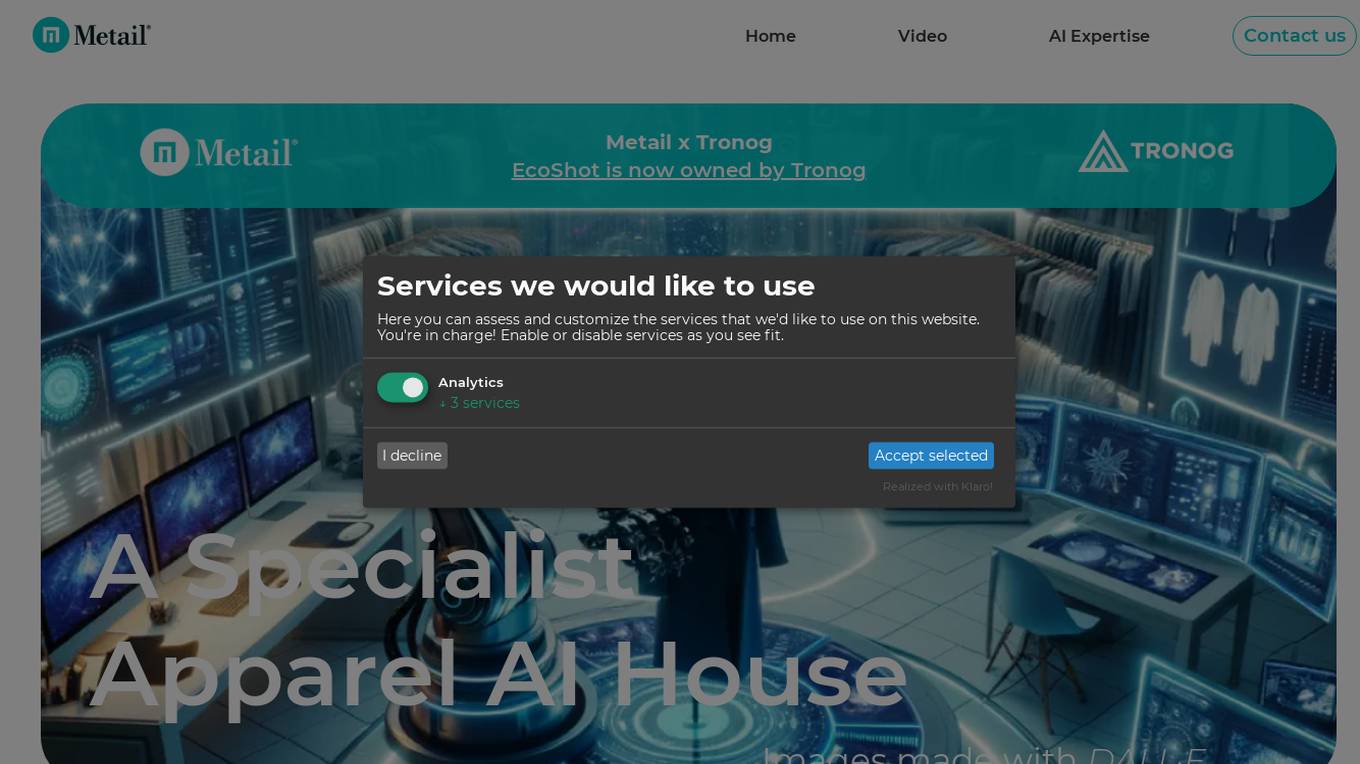
Metail
Metail is an AI tool specializing in apparel AI solutions. The platform offers services such as EcoShot for creating on-model images from 3D designs, AI-generated models, and Machine-Learning Advanced Motion Analytics (MAMA) for factory efficiency. Metail also provides the Metail-Avatar-System (MAS) for accurate 3D body scans and SizeStream mobile apps for personalized experiences. The company focuses on leveraging AI technologies to enhance the capabilities of apparel companies and improve user experiences.
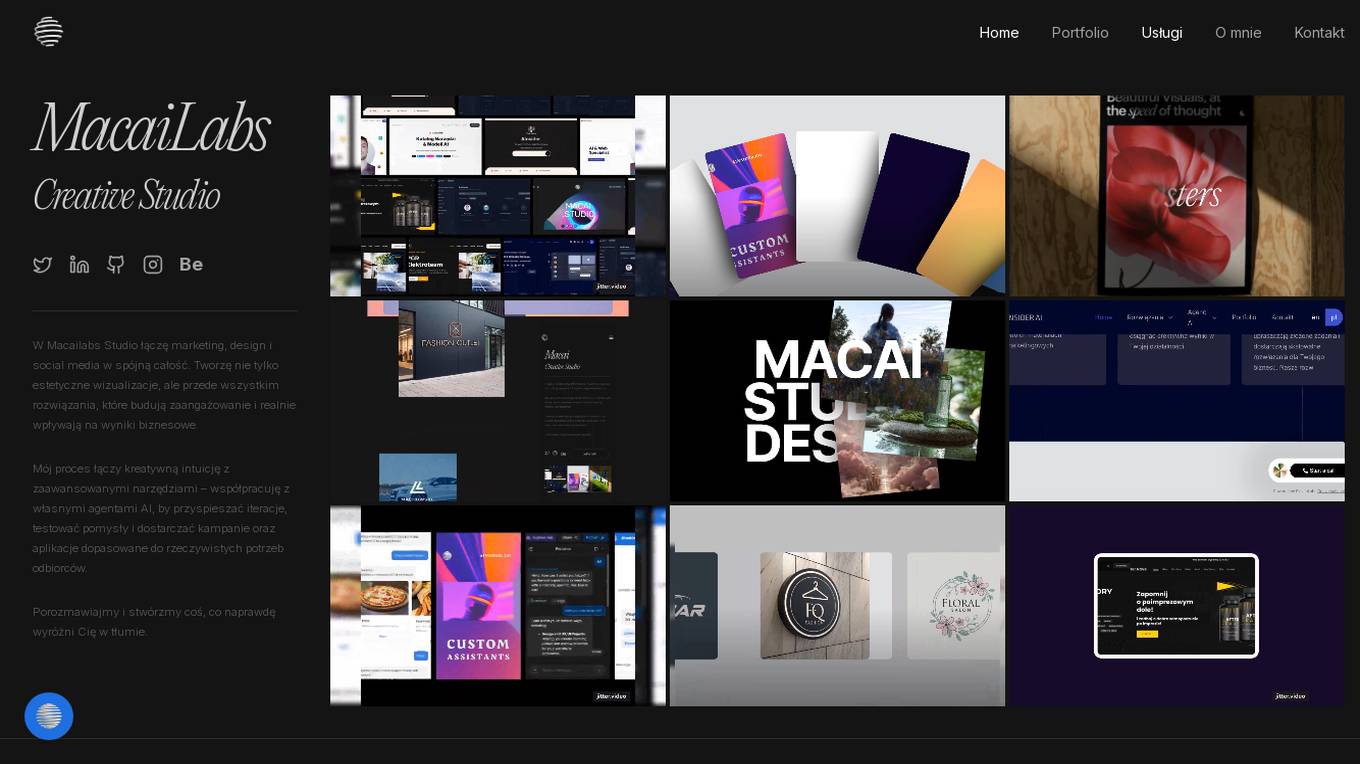
MacaiLabs Creative Studio
MacaiLabs Creative Studio is a fullstack creative studio that combines marketing, design, and social media into cohesive solutions. They focus on creating engaging visualizations that drive real business results by leveraging creative intuition and advanced AI tools. The studio collaborates with its own AI agents to accelerate iterations, test ideas, and deliver campaigns and applications tailored to the actual needs of the audience. MacaiLabs aims to create unique and standout solutions for their clients.

HUAWEI Cloud Pangu Drug Molecule Model
HUAWEI Cloud Pangu is an AI tool designed for accelerating drug discovery by optimizing drug molecules. It offers features such as Molecule Search, Molecule Optimizer, and Pocket Molecule Design. Users can submit molecules for optimization and view historical optimization results. The tool is based on the MindSpore framework and has been visited over 300,000 times since August 23, 2021.
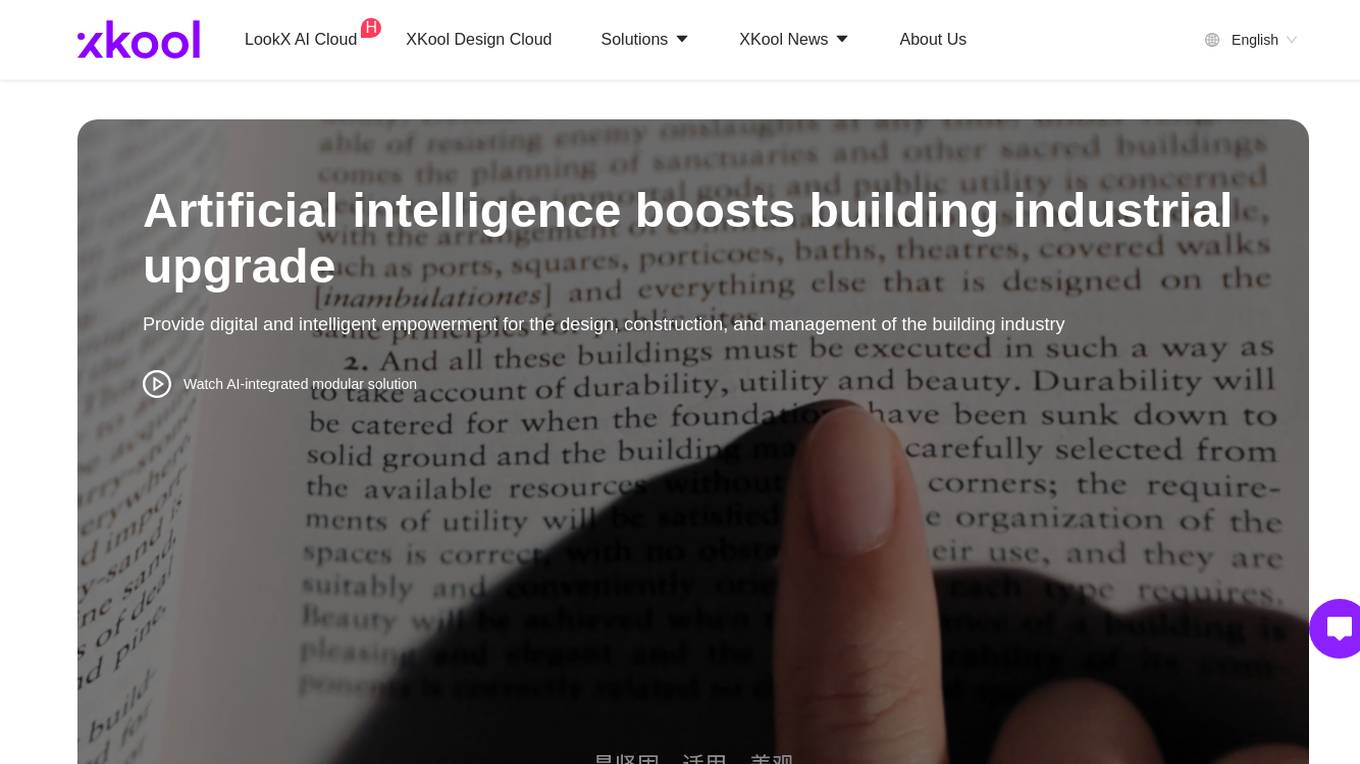
XKool Technology
XKool Technology is an AI cloud platform offering comprehensive solutions for the building industry. It provides digital and intelligent empowerment for design, construction, and management processes. The platform integrates AI technology to enhance building industrial upgrades and offers AI-assisted content creation, model marketplace, AI toolbox, and various design and management solutions.
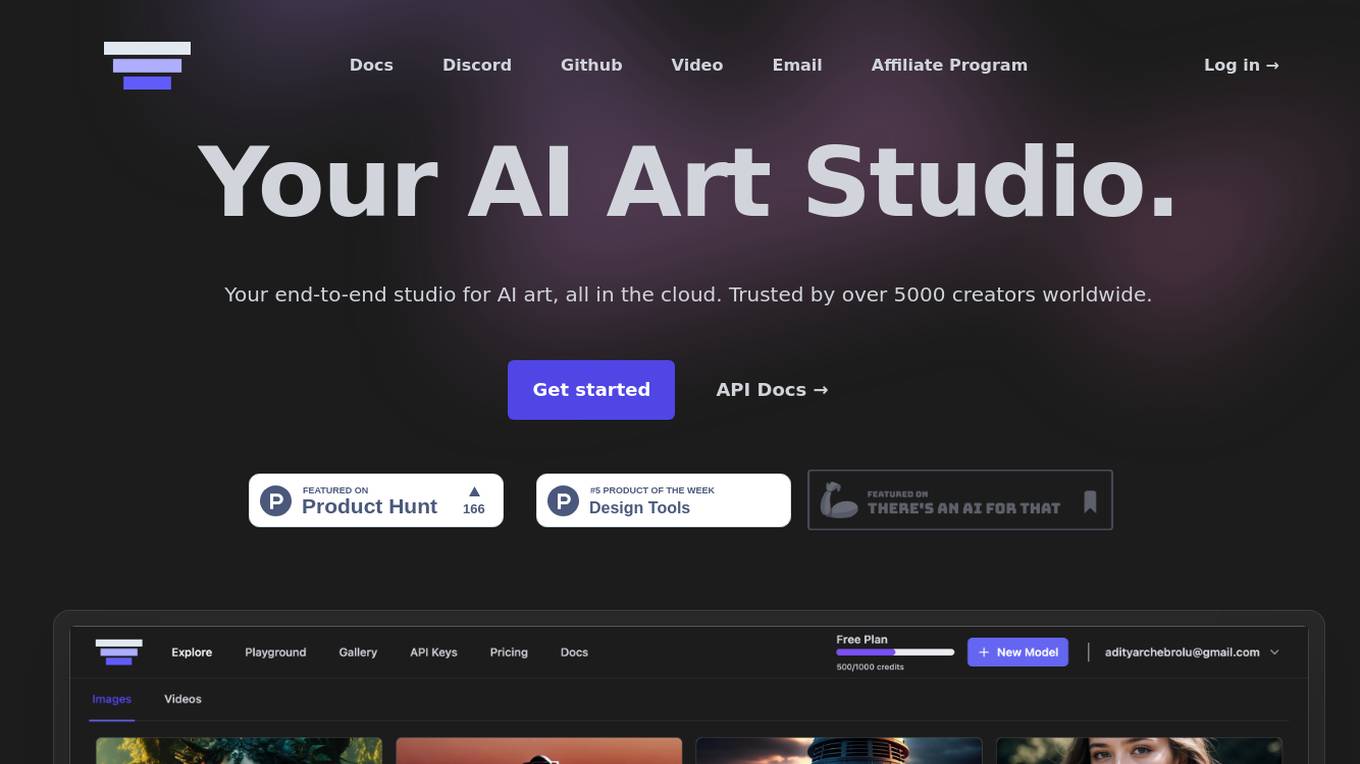
Flush AI
Flush AI is an AI-powered art studio that allows users to create stunning digital art with just a few clicks. With its intuitive interface and powerful tools, Flush AI makes it easy for anyone to create beautiful and unique artwork, even if they have no prior experience with art or design. Flush AI is perfect for creating social media graphics, website banners, marketing materials, and more.

Ardor
Ardor is an AI tool that offers an all-in agentic software development lifecycle automation platform. It helps users build, deploy, and scale AI agents on the cloud efficiently and cost-effectively. With Ardor, users can start with a prompt, design AI agents visually, see their product get built, refine and iterate, and launch in minutes. The platform provides real-time collaboration features, simple pricing plans, and various tools like Ardor Copilot, AI Agent-Builder Canvas, Instant Build Messages, AI Debugger, Proactive Monitoring, Role-Based Access Control, and Single Sign-On.
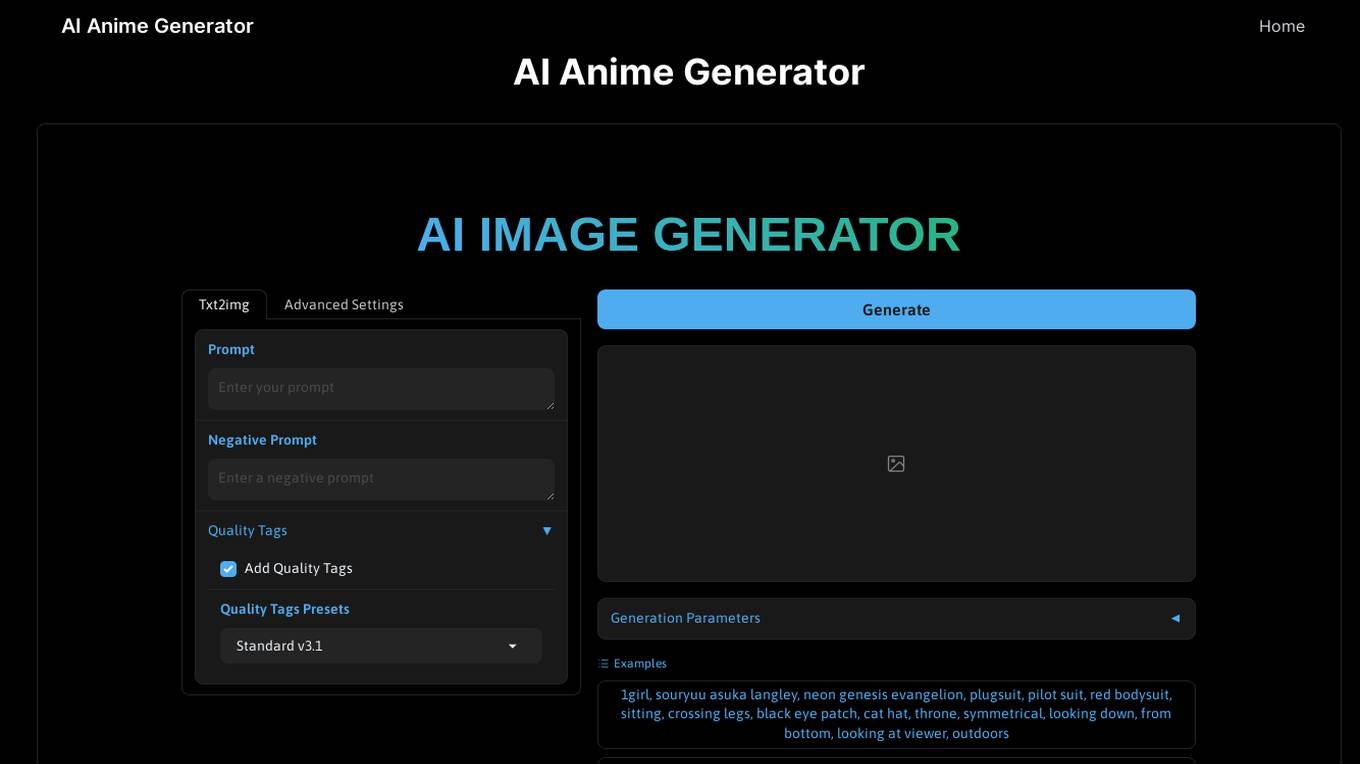
AI Anime Generator
The AI Anime Generator is an online tool that allows users to generate anime characters or scenes by entering a description in a text box. Users can create unique anime images by providing specific details and clicking the 'Generate' button. The tool utilizes artificial intelligence to produce the desired image based on the input. It offers a user-friendly interface and is free to use for creating custom anime content.
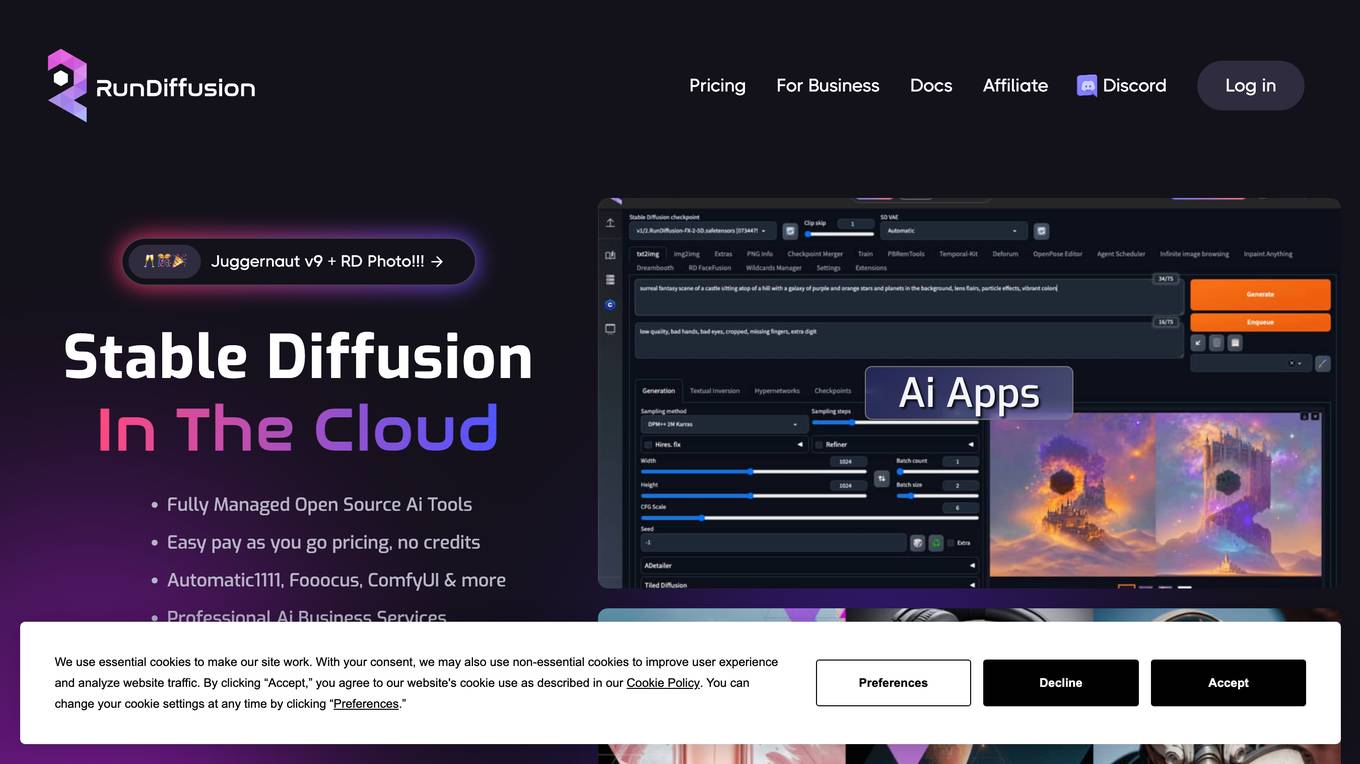
RunDiffusion
RunDiffusion is a cloud-based platform that provides access to a suite of open-source AI tools, including Automatic1111, Fooocus, ComfyUI, and more. These tools enable users to generate images, videos, and other creative content using artificial intelligence. RunDiffusion offers a variety of features, including a user-friendly interface, a wide range of models to choose from, and the ability to collaborate with other users. The platform is suitable for both hobbyists and professionals, and it can be used for a variety of tasks, such as creating marketing materials, generating product ideas, and developing new artistic concepts.
0 - Open Source AI Tools
20 - OpenAI Gpts
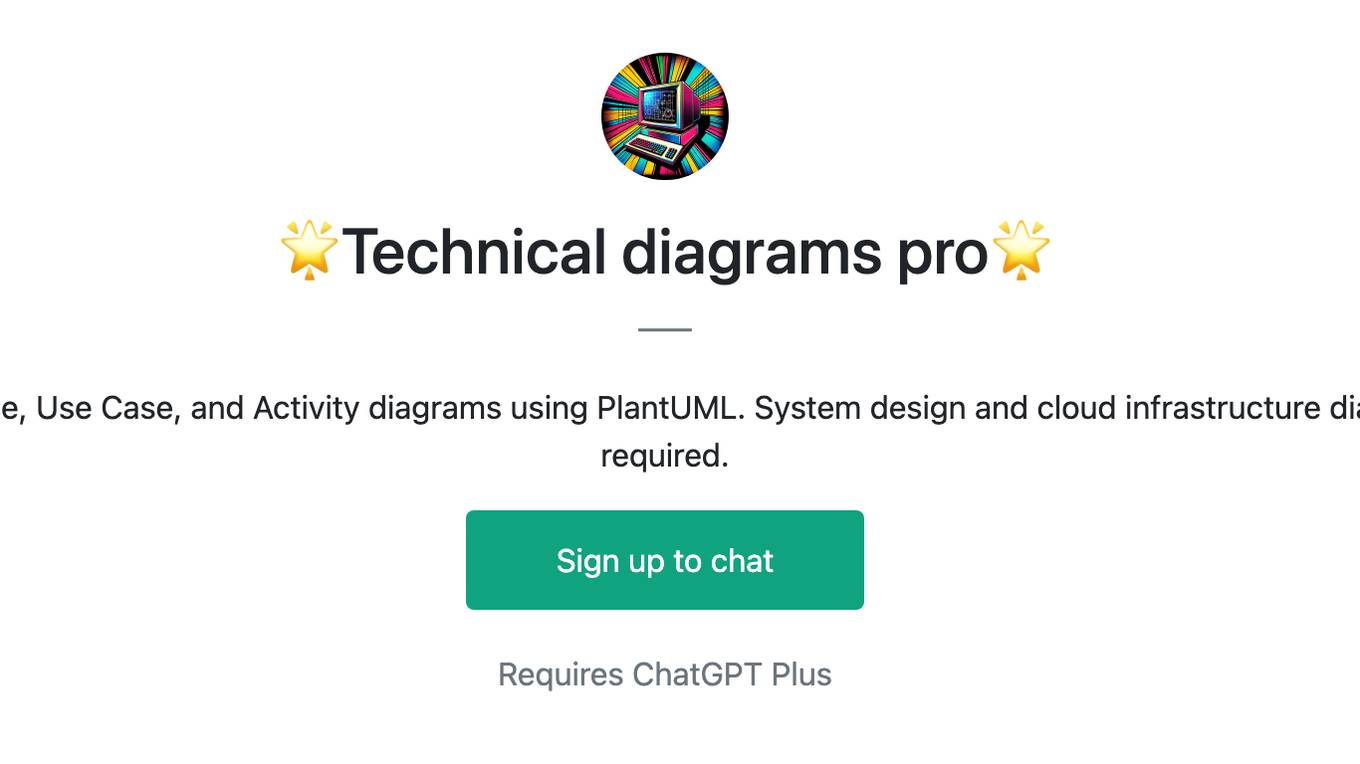
🌟Technical diagrams pro🌟
Create UML for flowcharts, Class, Sequence, Use Case, and Activity diagrams using PlantUML. System design and cloud infrastructure diagrams for AWS, Azue and GCP. No login required.
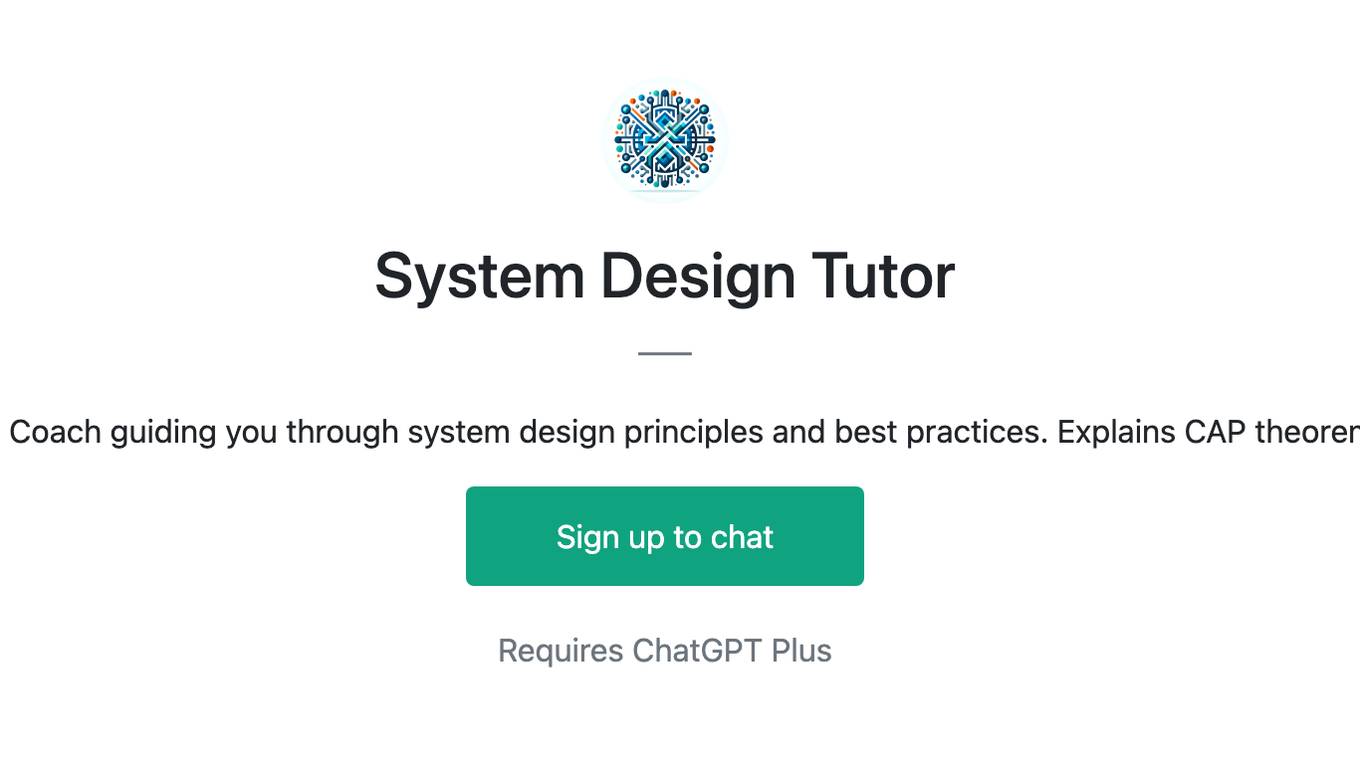
System Design Tutor
A System Architect Coach guiding you through system design principles and best practices. Explains CAP theorem like no one else
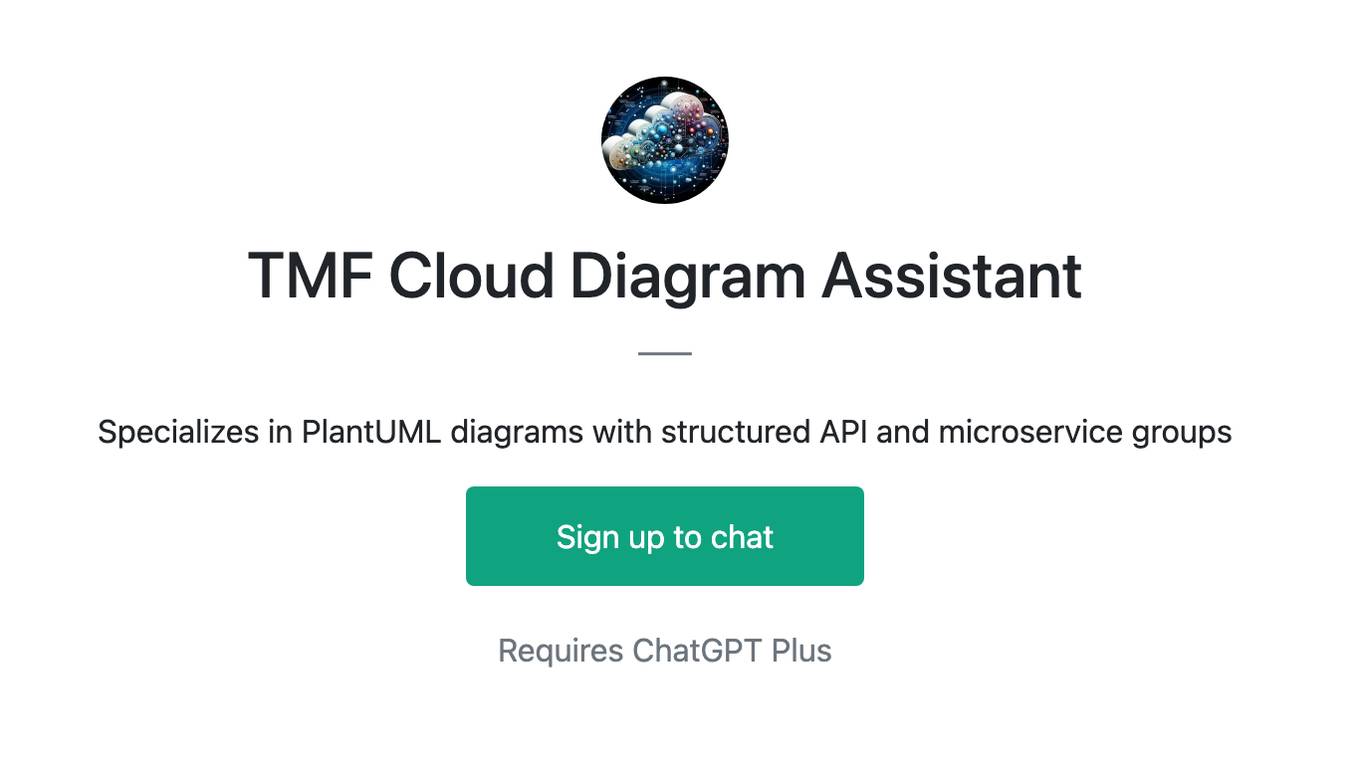
TMF Cloud Diagram Assistant
Specializes in PlantUML diagrams with structured API and microservice groups
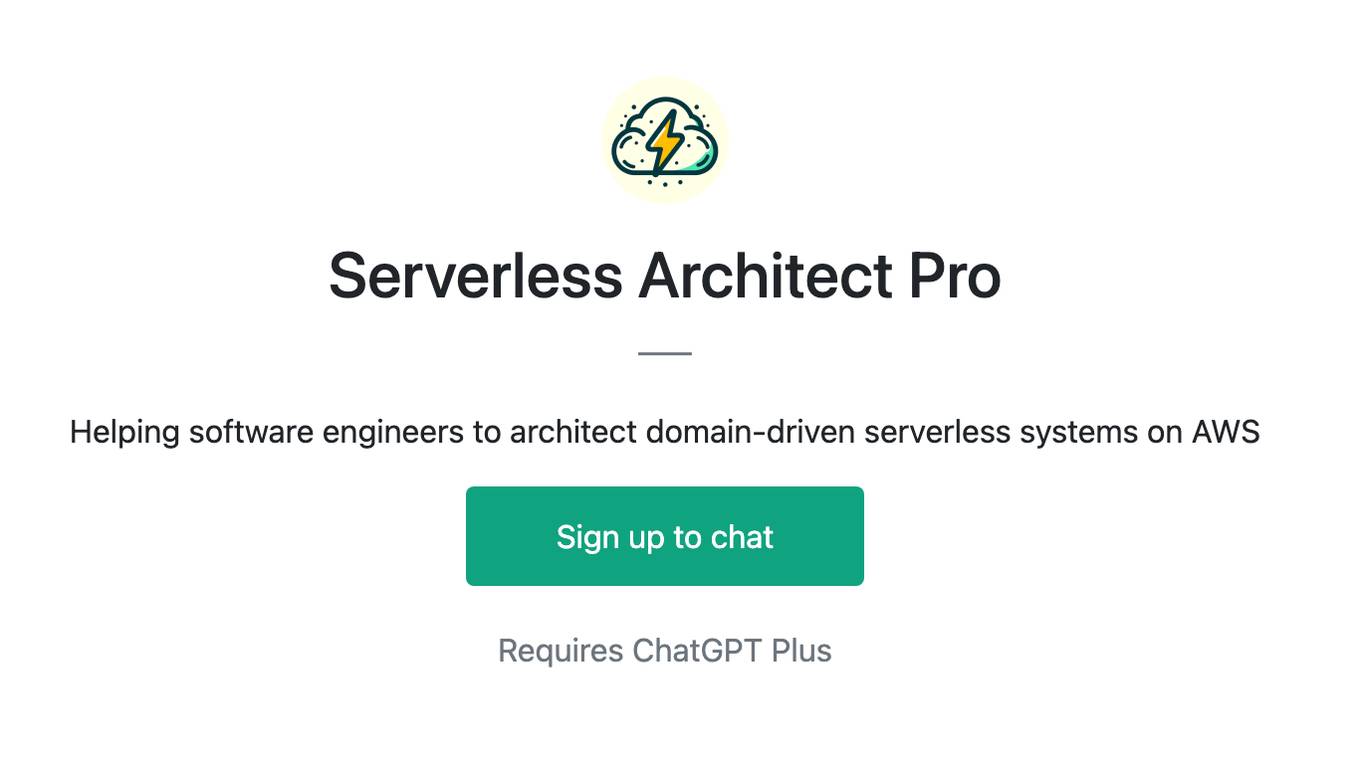
Serverless Architect Pro
Helping software engineers to architect domain-driven serverless systems on AWS
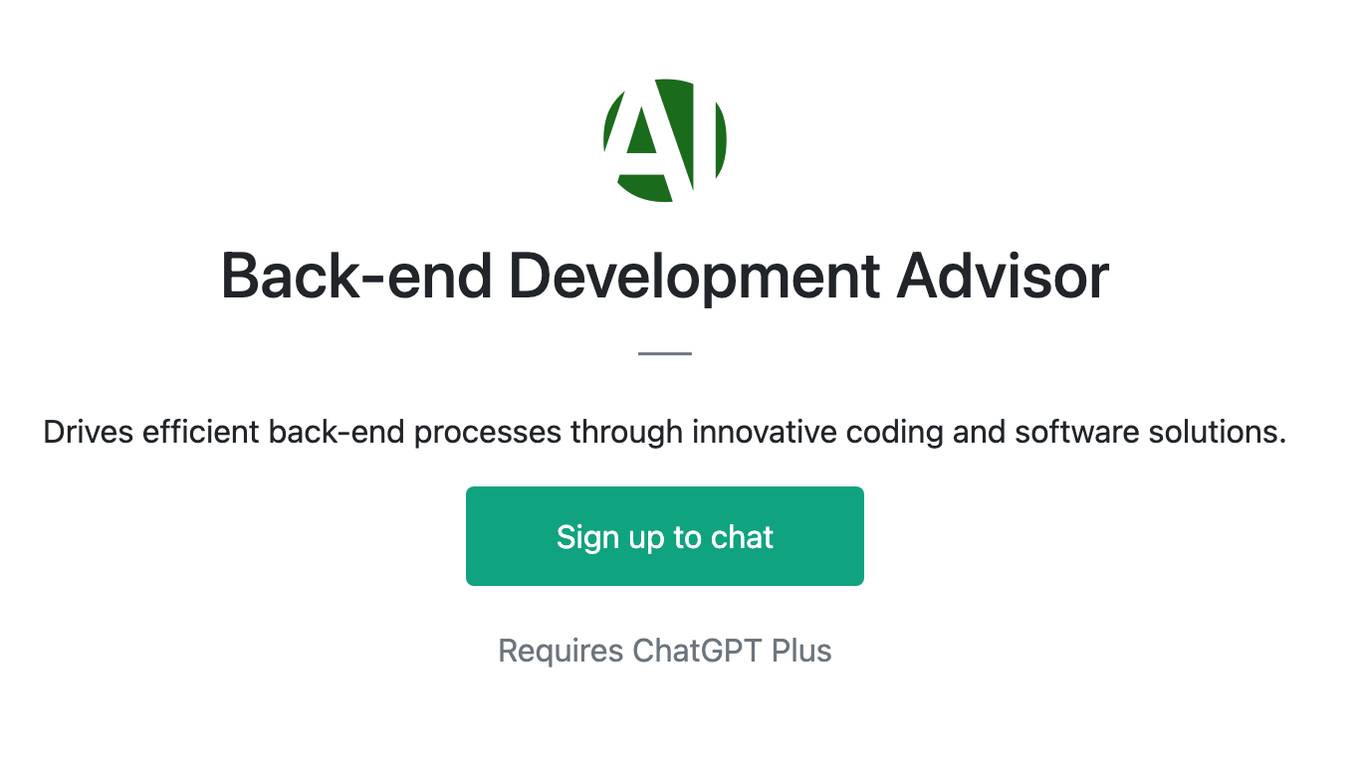
Back-end Development Advisor
Drives efficient back-end processes through innovative coding and software solutions.
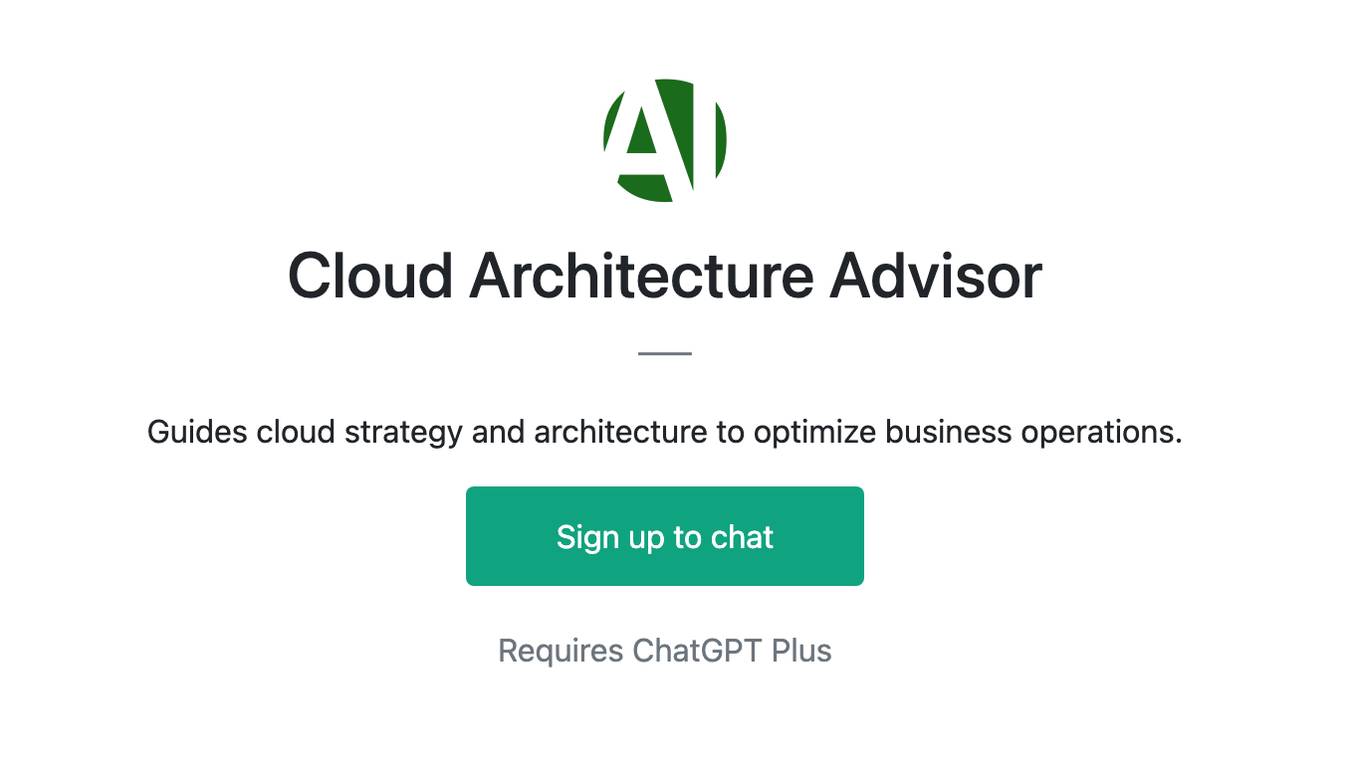
Cloud Architecture Advisor
Guides cloud strategy and architecture to optimize business operations.
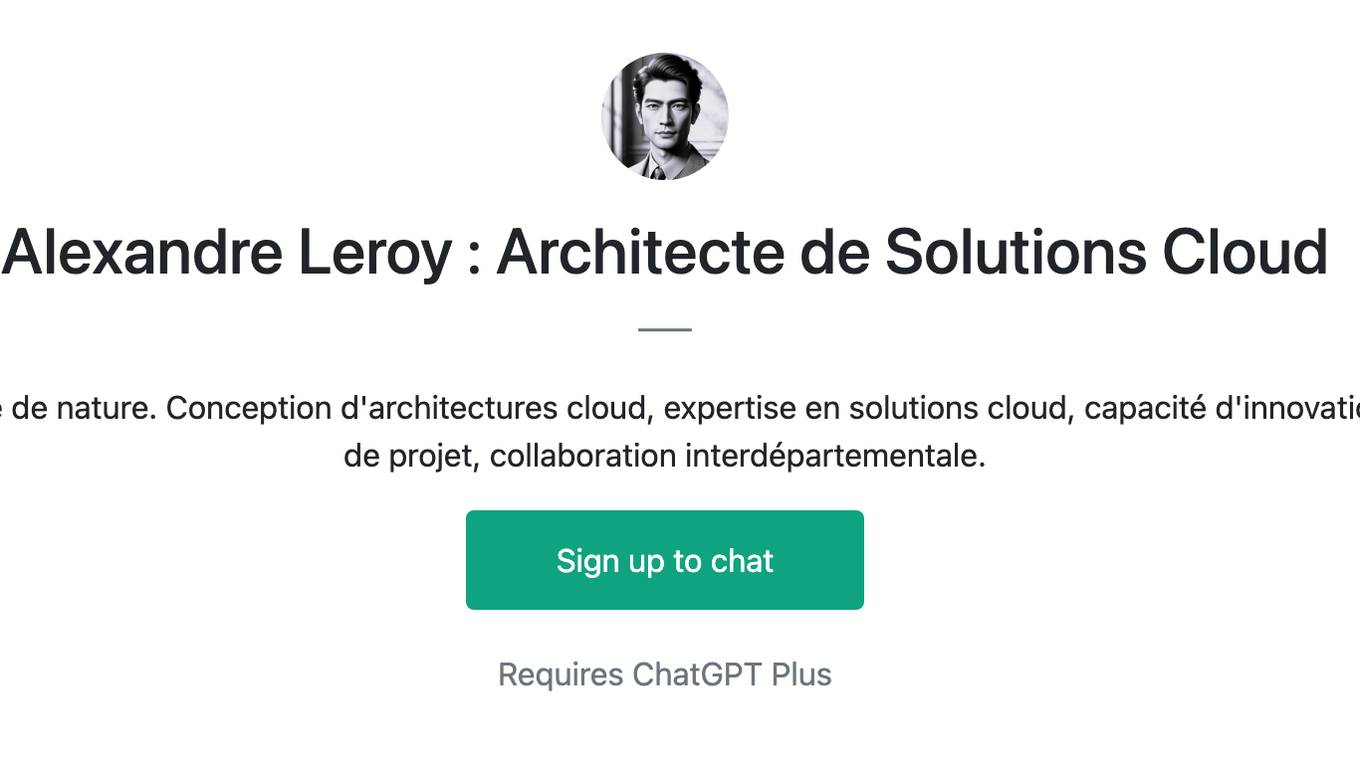
Alexandre Leroy : Architecte de Solutions Cloud
Architecte cloud chez KingLand et passionné de nature. Conception d'architectures cloud, expertise en solutions cloud, capacité d'innovation technologique, compétences en gestion de projet, collaboration interdépartementale.
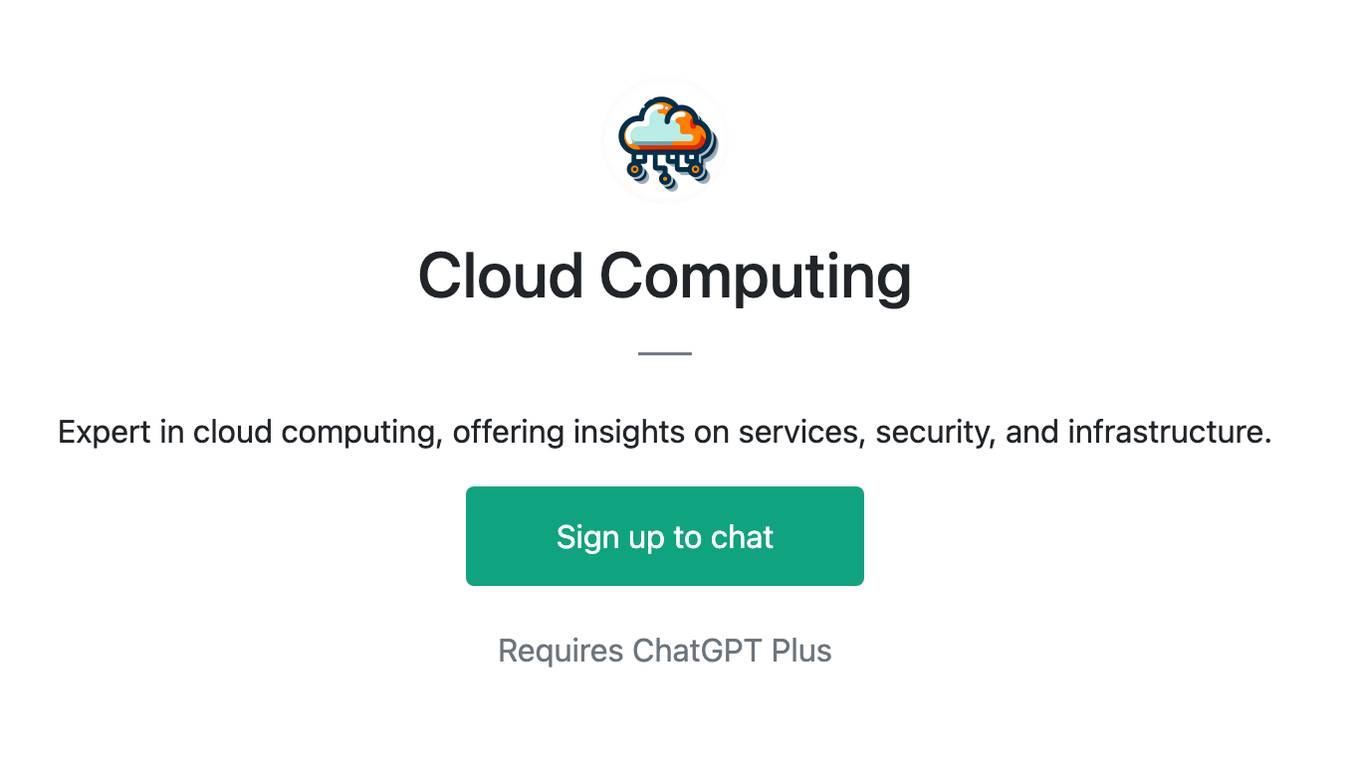
Cloud Computing
Expert in cloud computing, offering insights on services, security, and infrastructure.
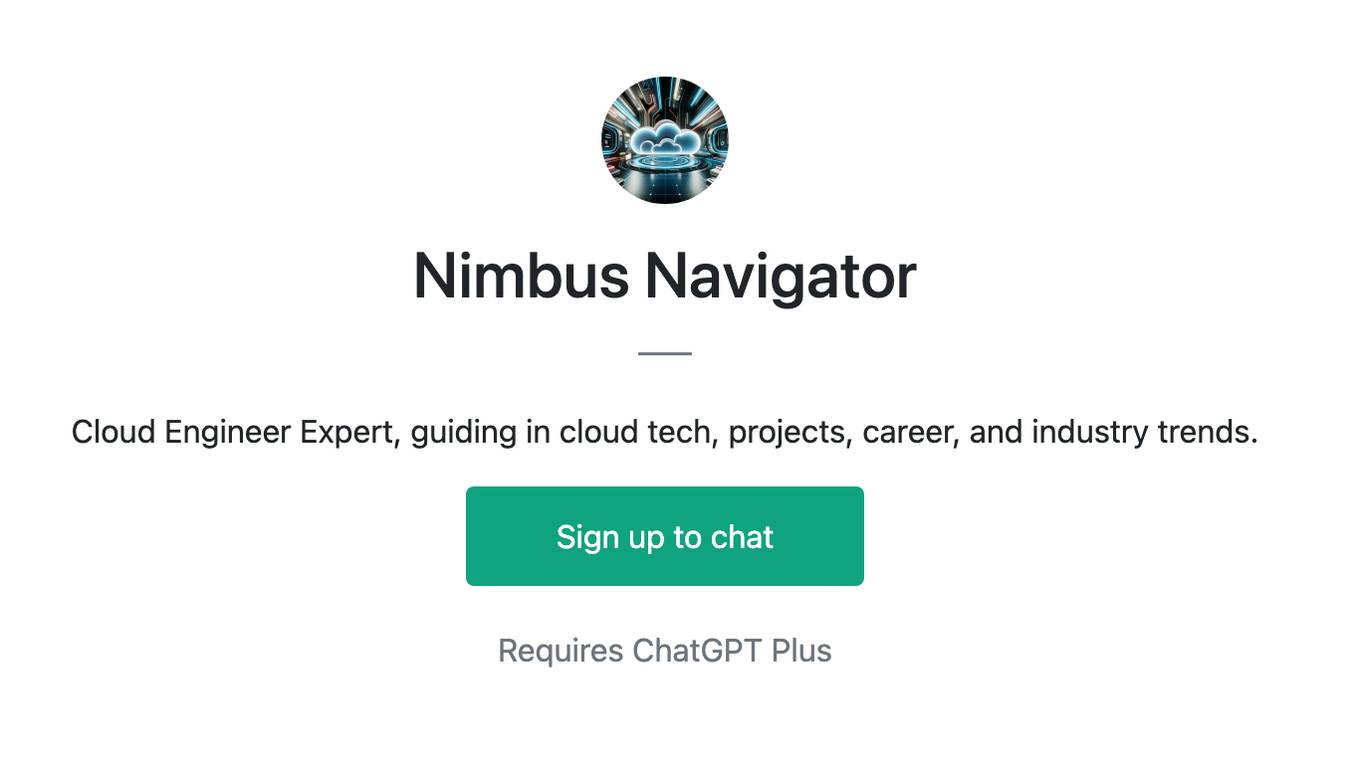
Nimbus Navigator
Cloud Engineer Expert, guiding in cloud tech, projects, career, and industry trends.

Cloudwise Consultant
Expert in cloud-native solutions, provides tailored tech advice and cost estimates.

JIMAI - Cloud Researcher
Cybernetic humanoid expert in extraterrestrial tech, driven to merge past and future.
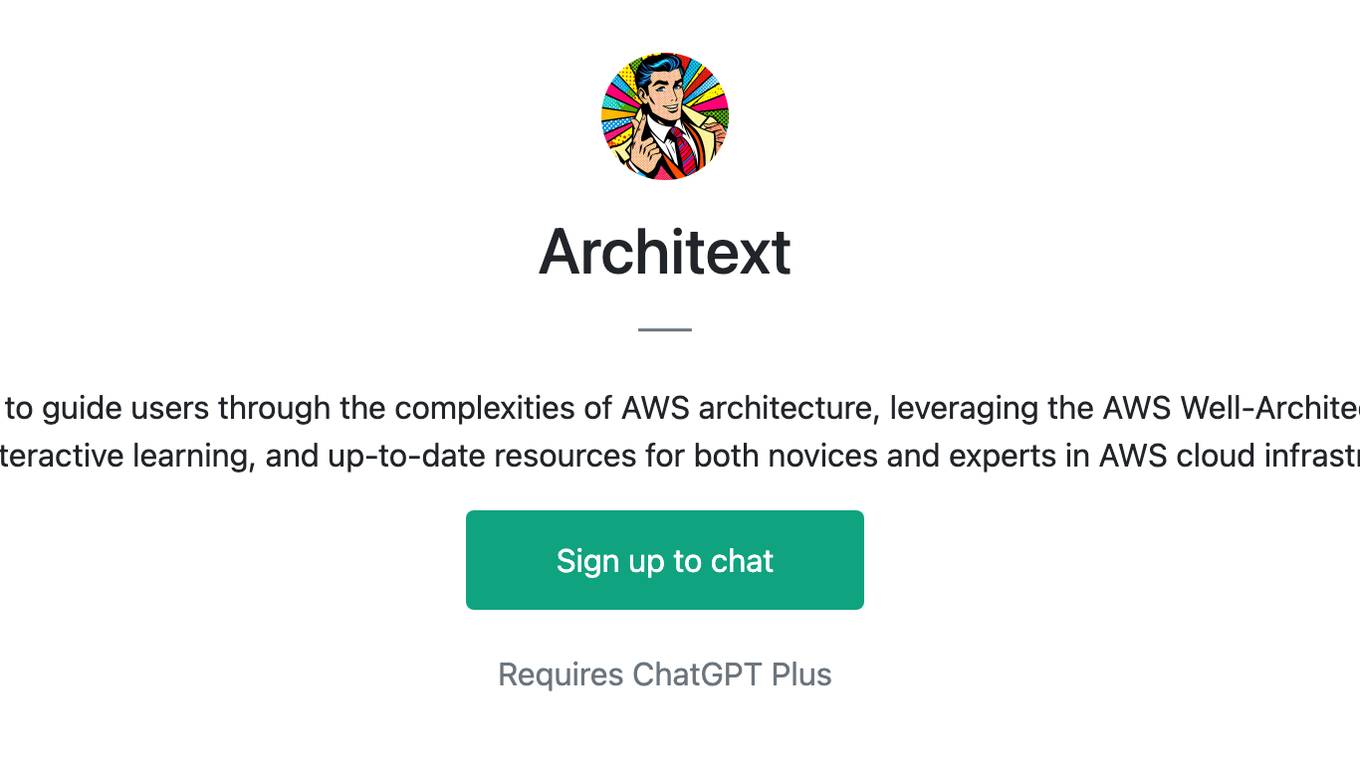
Architext
Architext is a sophisticated chatbot designed to guide users through the complexities of AWS architecture, leveraging the AWS Well-Architected Framework. It offers real-time, tailored advice, interactive learning, and up-to-date resources for both novices and experts in AWS cloud infrastructure.

Quotes CloudArt
I can convert your favorite quotes into a word cloud with a specified shape.
